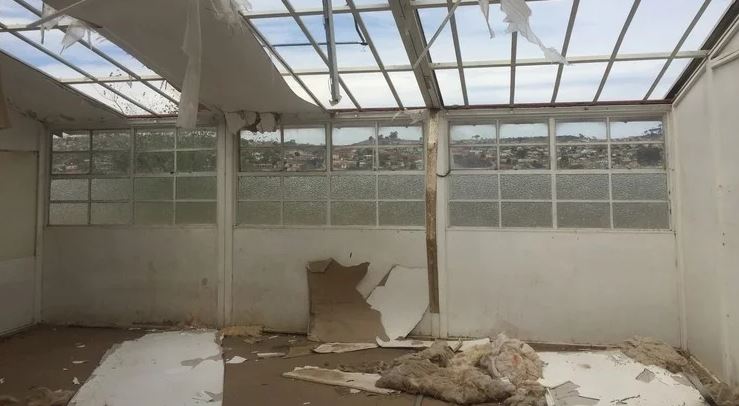
Contractors
have abandoned more than 50 major school upgrade projects in the Eastern Cape
after government departments failed to pay them on time.
Many of
these schools have been stripped of valuable materials and vandalised after
being abandoned.
One
example is Makhanda’s Grahamstown Primary School. The school moved into
temporary prefabricated premises in February to make way for a R55 million
upgrade. The revamp, originally due for completion in 2021, was to have
included an administration block, a new library, an IT centre and a school
hall, according to the school’s principal, Leon Coetzee.
Then in
June the contractors left abruptly, telling Coetzee that they had not been paid
by the provincial Department of Public Works, the implementing agent for the
project. This came as a complete surprise to the school, as they had not been
informed by the provincial Department of Education or of Public Works that
funds were not available to pay the contractors.
“Much
later, after the contractor left, the [provincial education] department came
and told us that the project had been stopped until further notice,” said
Coetzee.
According
to the provincial public works media spokesperson, Mlimandlela Ndamase, the provincial
education department “over-committed for the financial year. Hence the
delays in the execution of projects and payments to contractors.”
Without
any security around the abandoned building site, it was quickly stripped of all
valuable materials and vandalised. The windows were shattered, ceilings
stripped, electrical wiring ripped, and walls smashed.
Provincial
education department spokesperson Mali Mtima said that the department held no
responsibility for the vandalisation of the school because it is “the
contractor who is responsible for their site’s security”.
The
contractors did not respond to requests for comment.
After
three months of pressure by the school, the Department of Public Works sent
security personnel to guard the building site.
With the
project on hold until further notice, the school governing board is concerned
about the school’s future. The prefabricated premises were supposed to be
temporary, and are already showing signs of degradation. Coetzee said that the
“floors are busy giving” and there are leakages in some of the
classrooms.
The
current crisis is not due to a lack of funds, but rather due to a breakdown in
implementing agents paying contractors, according to Mtima. He said that some
implementing agents take on more contractors than they can afford, which leads
to non-payment, as they have to go through the education department to get more
funding. Another reason for non-payment is when Implementing agents submit
their claims for funds late, said Mtima.
He
confirmed that “about 52 major projects were affected” in the
province.
Mtima
said that R260 million was paid to implementing agents in September in order to
get contractors back on site, following a “cash injection from the
national department”.
In
October 2018, the Eastern Cape branch of Equal Education released a report
titled “Implementing agents: The Middlemen in charge in charge of building
schools” which describes the effects of failures by implementing agents on
learners and teachers in the province.
Implementing
agents are in charge of “managerial and project implementation” for
the provincial Department of Education, says Equal Education researcher Marc
Jacobs.
“They
are usually state-owned enterprises, public entities or non-profit
organisations” which often directly oversee the building and repair of
school infrastructure, he said.
“Implementing
agents typically receive 4.5% to 10% of the cost of a school infrastructure
project as management fees, regardless of their performance,” said Jacobs.
In the
Eastern Cape, the provincial and national education departments and treasuries
have failed to adequately monitor the delivery of school infrastructure. This
is because they are “understaffed and do not have sufficient programme
managers” to oversee the agents, according to Jacobs.
This lack
of accountability leads to wasteful expenditure, and mismanagement of
infrastructure sites, like that of Grahamstown Primary, he added.
Ndamase
said that the Department of Public Works had “provided technical solutions
to ease the current pressure” such as providing security for abandoned
building sites.
However, Coetzee is still unsure if the project will ever get off the ground.https://allafrica.com/stories/201910110452.html

